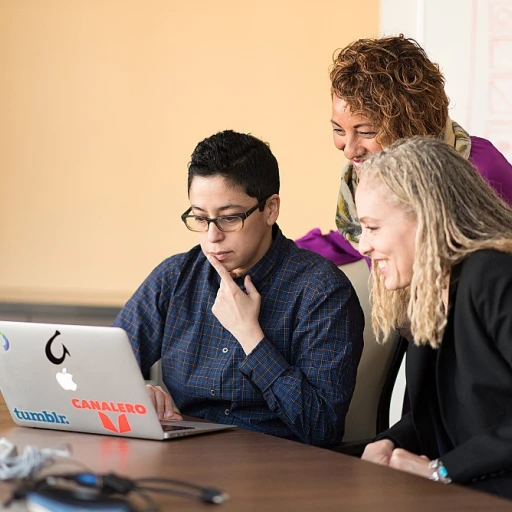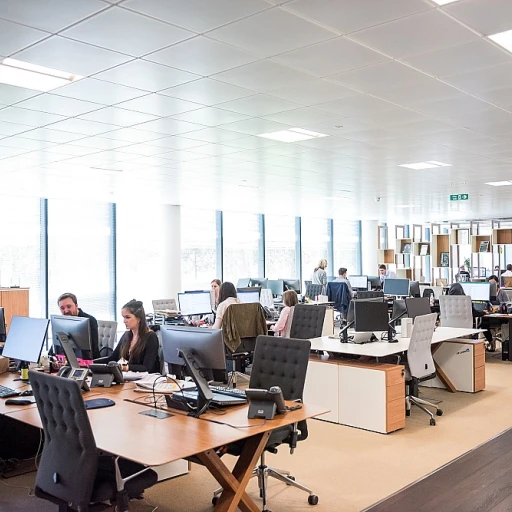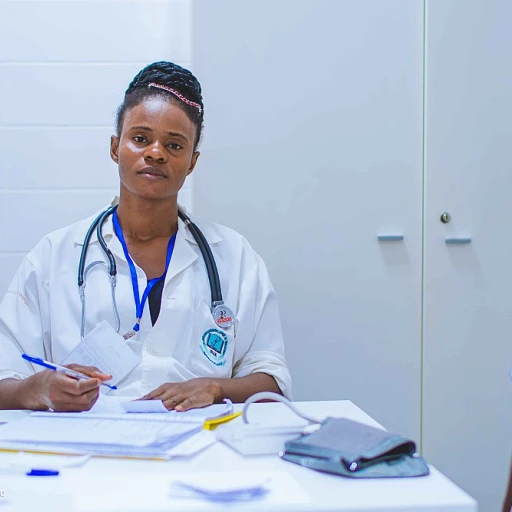
The Core Responsibilities of an IoT Developer
Core Tasks and Responsibilities of an IoT Developer
In the ever-evolving field of IoT, the role of an IoT developer is critical as they are the architects behind the integration of various smart devices into unified systems. IoT developers are responsible for the design, creation, and maintenance of IoT systems and applications. Their contributions cover a wide range of tasks that ensure the seamless operation of connected devices, from app development to managing cloud platforms.
Key responsibilities include the design and development of user-friendly IoT solutions that collect and process data from myriad sensors and devices connected through networks. This process often involves working with diverse IoT platforms and incorporating emerging technologies like machine learning to provide effective solutions.
IoT developers must also prioritize security. As the number of interconnected devices grows, safeguarding sensitive data from cyber threats becomes paramount. This entails implementing robust security measures during all phases of IoT development. They often collaborate with other departments to ensure the secure integration of IoT systems into existing networks.
Real-time data processing is another responsibility, requiring developers to optimize IoT applications to handle large volumes of data efficiently. By leveraging cloud and network resources, IoT developers can provide real-time responses and insights.
In summary, IoT developers play a vital role in the development and integration of smart devices into cohesive systems that enhance functionality and user experience across various applications. As industries continue to embrace IoT solutions, the demand for skilled developers remains a key part of technological advancement.
Key Skills and Qualifications
Essential Technical Prowess for IoT Roles
In the rapidly evolving field of IoT development, there are critical skills and qualifications that set apart effective IoT developers. These professionals need an adept understanding of both hardware and software aspects of IoT systems. A successful IoT engineer possesses a blend of several core skills:- Programming Languages Knowledge: IoT developers must be proficient in programming languages such as Python, C++, or JavaScript, which are key for developing IoT applications.
- Understanding of IoT Platforms: Familiarity with IoT platforms like IBM Watson, Microsoft Azure, and AWS IoT is essential for creating seamless IoT solutions and cloud integration.
- Networking and Real-Time Data: The internet of things network relies on efficient data transmission. Developers skilled in networking protocols ensure that sensors and smart devices communicate effectively in real time.
- Security Expertise: Given the data sensitivity involved with IoT devices, ensuring robust security is a non-negotiable skill. Developers must prioritize protecting IoT systems from potential breaches and vulnerabilities.
- Experience with IoT Devices and Sensors: An intimate understanding of IoT hardware, including how devices and sensors function, is crucial for designing solutions that meet user needs.
- Machine Learning and AI: As IoT increasingly integrates with AI and machine learning, developers proficient in these areas can create more intelligent and adaptive IoT applications.
- App Development: Skilled in app development, IoT developers can design interfaces that allow users to interact with smart devices seamlessly.
Challenges in Hiring IoT Developers
A Complex Equation: Overcoming Hurdles in Securing IoT Developers
Bringing an IoT developer on board is not without its unique challenges. With the rapid evolution of IoT technologies, these developers need to keep up with the increasing complexity of smart devices, cloud platforms, and real-time data processing. Sourcing candidates with the right mix of skills and experience can sometimes feel like searching for a needle in a haystack.
The high demand for skilled IoT developers means that competition is fierce. Developers who are well-versed in programming languages, such as Python and JavaScript, and have a solid foundation in IoT platforms and app development, are highly sought-after. Additionally, expertise in integrating IoT systems, managing networks, and handling IoT applications is crucial to tackling the multifaceted challenges of IoT development.
Another significant hurdle is the security aspect of IoT systems. As the volume of connected devices grows, ensuring the security of these systems becomes paramount. Developers must not only build robust IoT solutions but also implement strong security measures to protect sensitive data. This is where finding candidates with a background in security practices and protocols becomes essential.
Moreover, understanding the intricacies of IoT ecosystems, including the interplay of devices, sensors, and cloud services, is a key factor. Developers who are familiar with the latest trends, such as machine learning integration into IoT systems, stand out. Candidates with hands-on experience in devising real-time IoT solutions are more likely to succeed in creating innovative applications.
For recruiters seeking to attract the crème de la crème of IoT developers, strategic approaches such as highlighting industry-specific knowledge and advanced skills can make a difference. Tapping into the digital era's platforms to engage potential candidates can be instrumental. Learn more about how harnessing social media can enhance your recruitment efforts.
The Importance of Industry Knowledge
Enhancing the Value of Industry Expertise in IoT
In the fast-paced realm of IoT development, possessing strong technical skills is crucial, yet comprehensive industry knowledge equally underscores the role of an IoT developer. With the diverse range of IoT applications and solutions, experts in this field must have a deep understanding of the specific industry they are working in to ensure successful and efficient IoT integration.
An IoT developer responsible for smart devices in healthcare needs to be well-versed with data privacy laws and medical regulations. Meanwhile, those focusing on IoT solutions in manufacturing must understand real-time processes and automation systems. Industry-specific knowledge allows developers to foresee challenges and tailor IoT systems that align with business goals and operational needs.
The fusion of domain expertise with technological proficiency empowers IoT engineers to create innovative solutions that directly impact a company’s bottom line. Professionals with insight into both areas demonstrate an ability to navigate complex IoT platforms and cloud technologies, offering robust security and flexible networking options. This proficiency in specific sectors enhances how IoT devices communicate and function, optimizing sensor data acquisition and improving the overall efficiency of IoT systems.
As IoT developers and engineers continue to evolve with emerging trends like machine learning integration and advanced software development, the importance of having a solid foundation in the respective industry cannot be overstated. It allows for the adaptation to shifts in market needs and consumer demands, positioning developers to effectively leverage IoT opportunities.
Emerging Trends in IoT Development
Innovative Trends Shaping IoT Development
The realm of Internet of Things (IoT) development is evolving rapidly, driven by technological advancements and the increasing need for smarter, interconnected systems. As developers work tirelessly to create solutions that leverage the potential of IoT, several emerging trends have begun to shape the way these applications and systems are designed and implemented.
One significant trend is the integration of machine learning algorithms. These enable IoT systems to process vast amounts of data from various devices and sensors with increased accuracy and efficiency, paving the way for truly intelligent applications. Coupled with data analytics, these technologies allow developers to create solutions that not only respond to real-time events but also make predictive decisions, enhancing the overall functionality of IoT systems.
Another notable trend is the focus on security. As more devices connect to the Internet, ensuring the security of IoT platforms and applications becomes critical. Developers must embed robust security measures into IoT solutions to protect sensitive data and maintain the trust of consumers and businesses alike.
The rise of cloud platforms has also transformed the landscape of IoT development. By offering scalable and flexible resources, cloud solutions enable developers to build and deploy applications more efficiently, supporting the growing volume of data generated by IoT devices. Cloud integration simplifies the management of complex IoT systems, allowing developers to focus on enhancing their core functionalities.
The advent of smart devices is transforming consumer expectations and demands. Developers must adapt by crafting applications that seamlessly integrate with these devices, ensuring seamless user experiences. This requires familiarity with a range of programming languages and tools to deliver comprehensive IoT solutions.
Ultimately, staying informed about these trends gives developers an edge, ensuring that their solutions remain at the forefront of IoT innovation. The ability to anticipate and adapt to these changes not only enhances the value of their applications but also attracts top talent to their teams, driving further innovation and development in the field of Internet of Things.
Strategies for Attracting Top IoT Talent
Effective Strategies to Attract the Best in IoT Development
Attracting top IoT talent requires a multi-faceted approach, one that recognizes their unique skillsets and responds to the competitive nature of the tech industry. Understanding the core responsibilities of an IoT developer and acknowledging the challenges they face is crucial. Here are some strategies to consider:
- Highlight Technological Infrastructure: Demonstrate your organization's commitment to advanced technologies. Highlight your use of cloud platforms, smart devices, IoT systems, and the integration of machine learning in your development processes.
- Competitive Compensation and Benefits: Offer competitive salaries, along with benefits that reflect an understanding of the specialized expertise required in IoT development.
- Provide Opportunities for Growth: Foster an environment where developers can engage with cutting-edge IoT devices, data analysis, and real-time applications. Encourage continual learning by supporting professional development opportunities related to the Internet of Things and related technology sectors.
- Cultivate a Culture of Innovation: Create a work culture that values creativity and sustainable innovation. Encourage your iot developers to contribute to groundbreaking IoT solutions and applications.
- Showcase Success Stories: Use case studies and real-world examples to highlight how your past IoT app and systems integration projects have succeeded. This can be a decisive factor for a developer responsible for app development, considering potential employers.
Overall, organizations that excel in attracting top talent recognize the evolving trends in IoT development and tailor their strategies accordingly, ensuring they remain at the forefront of technological advancement.













